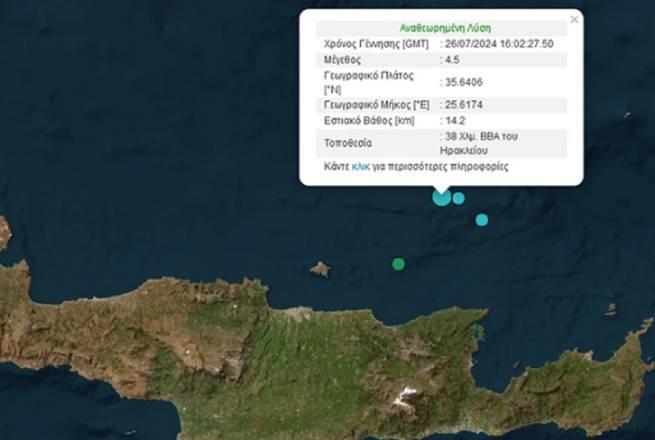Outside Greece, few people know about this event, and in Athens itself, foreign students of Greek universities with a very indifferent look pass by posters with tanks reminiscent of the events of 42 years ago. Perhaps, Greek students and the police department know the best about Polytechnio, which annually “disentangles” the consequences of the hardness of student memory.
In Greece, this date is special: on November 17, the country commemorates the memorable events that took place on this day in 1973 at the National Polytechnic University of Metsovio, as it falls on the day of student protests against the military junta of “black colonels”.
Polytechnio is not a holiday, but it is not a commemoration either. It is rather a traditional political action with a Greek national subtext. I would even draw a parallel between Polytechnio and Happy Ohibecause both days are the result of a Greek protest against what they considered unacceptable for themselves. But if Ohi Day is a protest against an external enemy, then with Polytechnio everything is much more complicated. Then the Greeks attacked the Greeks and, ultimately, 28 people died, 128 were seriously injured and more than 1000 went down in history as “victims”. However, these figures are approximate, the exact data on the victims in those days still remain a mystery.
View the embedded image gallery online at:
https://rua.gr/news/sobmn/44770-17-noyabrya-lden-politexnior-v-greczii-prazdnuyut-osobo.html#sigProIdcf183fd0f3
How the Greeks celebrate this day
Festive events are held in schools at which children read poems and draw pictures dedicated to this event, people of the older generation, remembering or taking part in the events of the distant 1973, come to the Polytechnio building to pay tribute to the memory of the dead or gather in the cafe to discuss the times of their youth. Students and their peers march through the streets of cities in Greece.
But there is also a special category of people in Greece who celebrate this day with fights, pogroms and clashes with the police. In fact, not a single year has passed since 1974, when that day went without any incident. The author of these lines did not have a chance to be in Greece until 2001, but even then, the local media discussed this event, only in the police chronicles. This is still the case. …
Chronicle of events
November 14, 1973
Students of the city of Athens took over the Polytechnio. Their slogan is: BREAD – EDUCATION – FREEDOM – NATIONAL INDEPENDENCE (ΨΩΜΙ – ΠΑΙΔΕΙΑ – ΕΛΕΥΘΕΡΙΑ – ΕΘΝΙΚΗ ΑΝΕΞΑΡΤΗΣΙΑ).
19:00 – More than 1500 students decided to stay overnight at the Polytechnio.
A Coordinating Council was created from representatives of all faculties, which established control over the slogans, banning those that did not convey the actual demands of the students. Through horns and a small transmitter, the committee began transmitting the slogans of the rebellious students and began collecting food, medicine, etc.
Tens of thousands of Athenians gathered around the university in support.
November 15, 1973
Students filled the courtyard and buildings of the Polytechnio, students of the city of Athens approached the university straight from their schools, bringing more and more food, medicine and other necessary things to the students who were determined to fight.
The Coordination Council announced that the performance at the Polytechnio was anti-fascist and anti-imperialist.
A new transmitter went into operation, operating throughout Attica. All listeners were seized by unreasonable excitement and a sense of pride: “This is the Polytechnio! This is the Polytechnio speaking! On air student radio station of Greek freedom fighters. Down with the junta! Down with Papadopoulos! Americans out of the country! No to fascism! The junta will fall at the hands of the people …
Everyone take to the streets, support us in the name of your freedom! “
In turn, students in Thessaloniki and Patras also occupied the university buildings. The peasants from Megara went to Athens …
In the Athenian region of Aigaleo, revolutionary uprisings began; Piraeus followed him …
All Greece sided with the students who rose to the fight.
November 16, 1973
More than 150,000 people lined up around the Polytechnio, chanting along with freedom-minded students: “Down with the junta, the junta will fall from the hands of the people!”
19:30 – The dictatorial government gave the order to strike at the mass of people standing around the Polytechnio. Tear bombs fell incessantly, creating an unbearable atmosphere.
The people started lighting fires to neutralize the effect of the gas. Bullets whistled, slaying the first victims inside and outside the Polytechnio fence.
The people began building the barricades without retreating a single step.
24:00 – An army accompanied by tanks entered Athens, occupying strategically important positions.
November 17, 1973
02:00 – Tanks approached the Polytechnio building. “Soldiers, we are unarmed, we are brothers, do not shoot us! Join us!” – shouted the students.
03:00 – One of the tanks knocked down the iron gates of the Polytechnio, which the students climbed. The army and police entered the courtyard. Many students were arrested and taken to the military police, where they were tortured.
Some soldiers defended the students, helping them escape.
Street fighting continued around the Polytechnio until early morning.
11:00 – The power of the military is restored, but the student uprising at the Polytechnio marked the beginning of its end.
The uprising of the people and the crime committed against the nation led to the overthrow of the dictatorship.
Since then, on this day, all students of the country honor the memory of their fallen comrades, and for the entire Greek people, November 17th has become one of those sacred dates that characterize their steadfastness and steadfastness in the struggle for their freedom and independence.






More Stories
Journalistic investigation: who is he, the Russian arrested in France – an FSB officer or a boastful alcoholic (video)
Hurriyet: “Greece asked Turkey for permission to lay cable – Turkish jurisdiction recognized”
France: 'Chaos' on trains and metro. Airport evacuated. Dozens of attacks on athletes and tourists